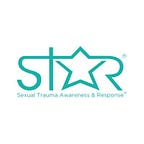Abortion Bans Cause Further Harm to Survivors of Rape & Incest
This Louisiana Legislative Session, STAR supports House Bills 346 and 549 to be voted on by the Administration of Criminal Justice Committee this week. These bills would allow rape and incest to serve as exceptions to Louisiana’s current abortion ban, under certain circumstances.
As advocates for survivors of sexual violence, STAR believes that we must ensure that survivors have the right to bodily autonomy, including the right to terminate a pregnancy as a result of rape or incest.
Sexual violence disproportionately impacts women and girls. According to the Rape, Abuse & Incest National Network (RAINN), 82% of all minor victims of rape and 90% of adult victims of rape identify as female (1). Further, girls aged 16–19 are four times more likely than the general population to experience incest, rape, attempted rape, and sexual assault (2). According to the Centers for Disease Control and Prevention (CDC), almost 3 million women in the U.S. experience a rape-related pregnancy during their lifetime (3).
Minors and young adults experience significant barriers to accessing reproductive healthcare, such as birth control and testing and treatment of sexually transmitted infections. Of all female victims, 41% reported that their first experience of rape or incest happened prior to age 18 (4). There are several short-term health consequences of rape; these include physical injury, sexually transmitted infections, and pregnancy, just to name a few.
Nationally, 5% of all rapes committed among women and girls of reproductive age (ages 12 to 45) result in pregnancy (5). In a given year, centers like STAR across Louisiana serve thousands of survivors of rape and incest who are at risk for becoming pregnant as a result of sexual violence. Eliminating or restricting abortion as an option for survivors of rape and incest hinders their ability to recover from sexual violence and puts their overall health and lives at risk.
No survivor of rape or incest should have to carry a pregnancy to term. Stand with STAR and survivors and SUPPORT House Bills 346 and 549.
Sources cited:
(1) Rape, Abuse, and Incest National Network (n.d.). Victims of Sexual Violence: Statistics.
(2) Rape, Abuse, and Incest National Network (n.d.). Victims of Sexual Violence: Statistics.
(3) Centers for Disease Control and Prevention. (2020, August 13). Understanding pregnancy resulting from rape in the United States.
(4) Smith, S.G., Chen, J., Basile, K.C., Gilbert, L.K., Merrick, M.T., Patel, N., Walling, M., & Jain, A. (2017). The National Intimate Partner and Sexual Violence Survey (NISVS): 2010–2012 State Report. Atlanta, GA: National Center for Injury Prevention and Control, Centers for Disease Control and Prevention.
(5) Holmes, M. M., Resnick, H. S., Kilpatrick, D. G., & Best, C. L. (1996). Rape-related pregnancy: Estimates and descriptive characteristics from a national sample of women. American Journal of Obstetrics and Gynecology, 175(2), 320–325. doi:10.1016/s0002–9378(96)70141–2
